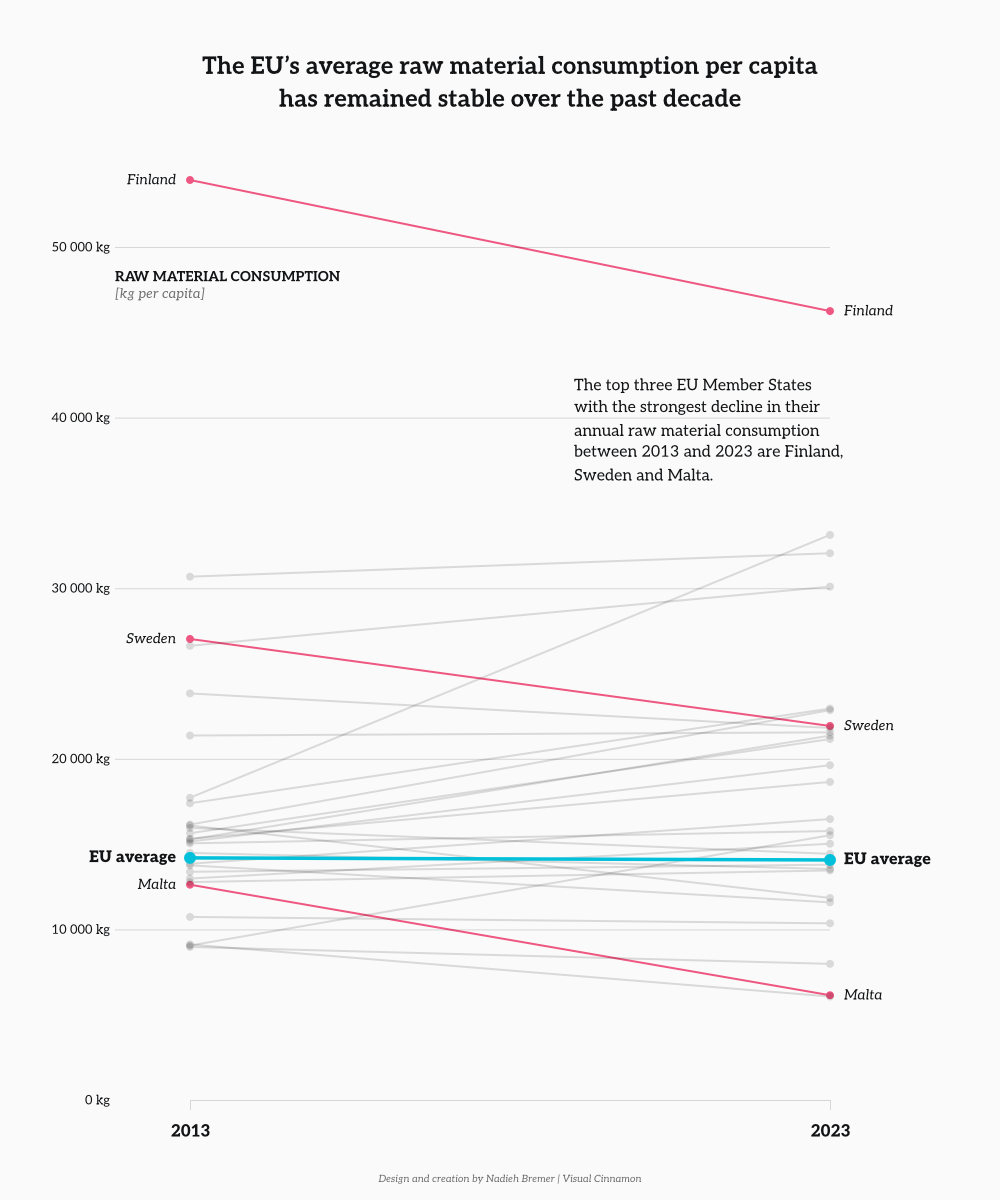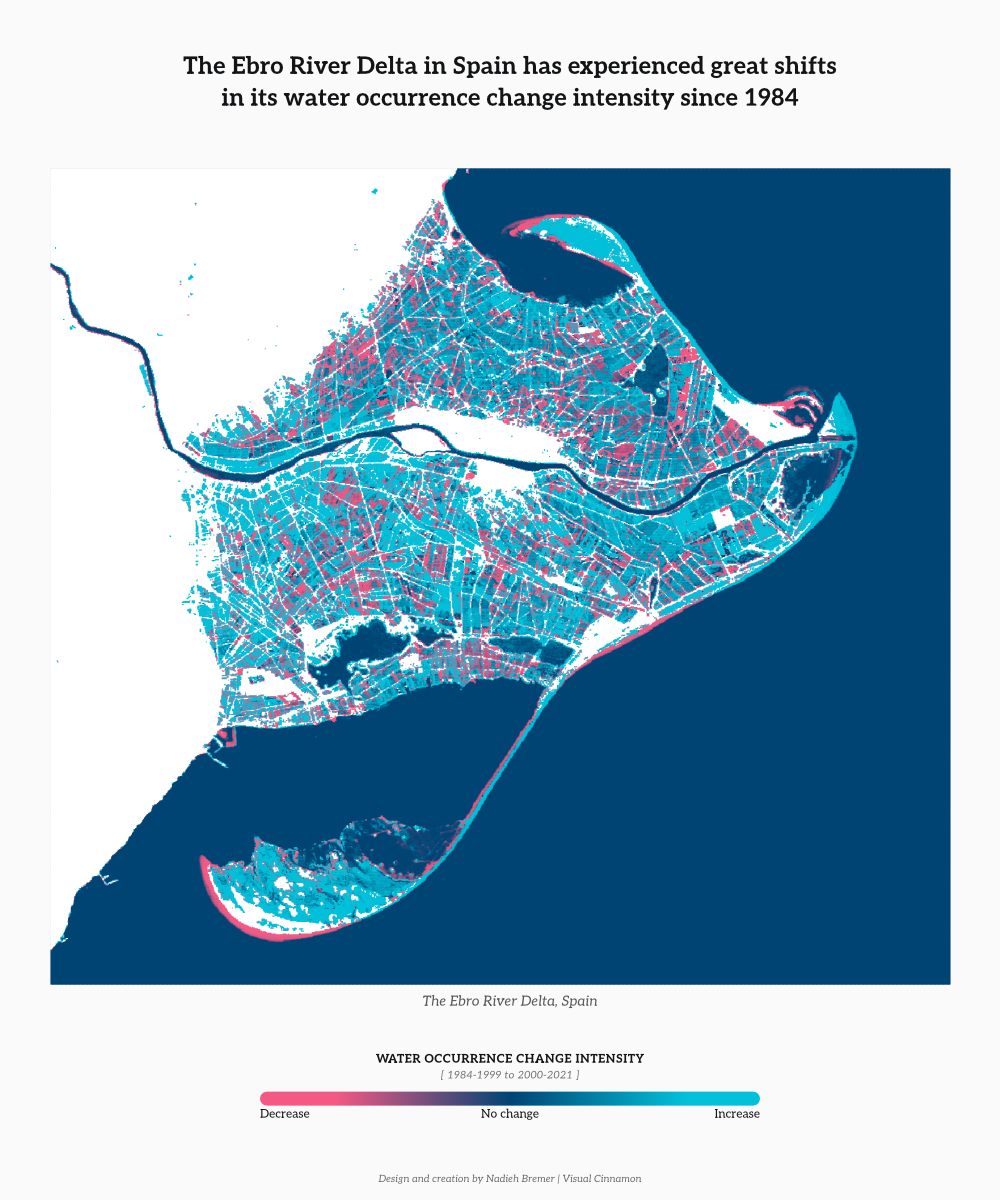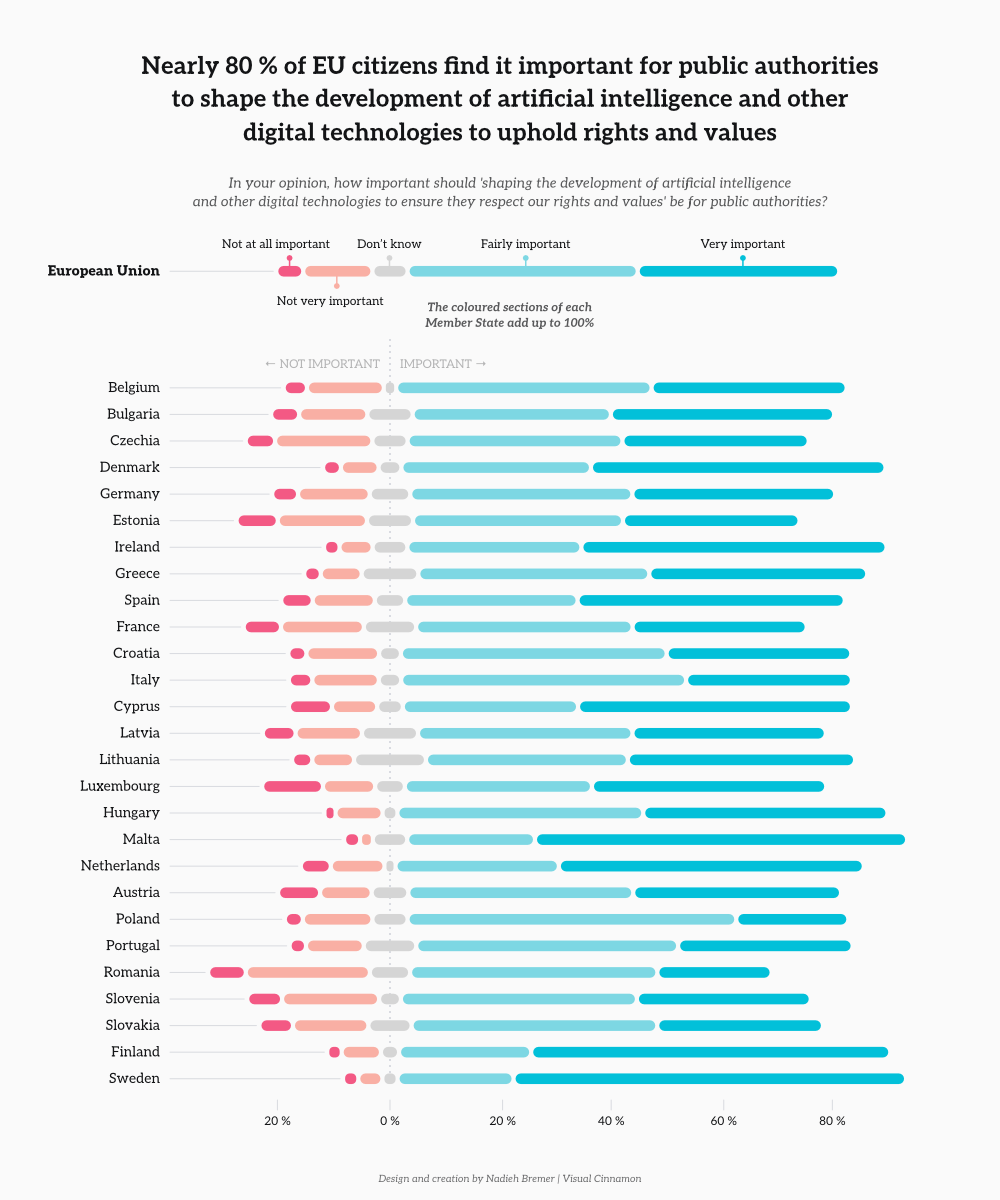A Promising Horizon: How the 2025–2027 Horizon Europe strategic plan will shape Europe’s tomorrow
Using open data to explore Horizon Europe’s planned investment in the circular economy, space and artificial intelligence
In March 2024, the European Commission published the 2025–2027 Horizon Europe strategic plan, outlining the EU’s priorities for research and innovation in the coming years. This forward-looking plan goes beyond funding – serving as a strategic blueprint for driving research and tackling some of the most pressing challenges faced by European citizens and businesses.
The plan channels investment into areas where research and innovation can deliver the highest impact. Among them, three key themes stand out for their growing relevance, public support and transformative potential:
- advancing the circular economy and reducing raw material consumption (RMC);
- harnessing space technologies for societal benefit; and
- promoting responsible artificial intelligence (AI) development.
This data story uses open data to illustrate how Horizon Europe is turning strategic intent into action. It explores how investment in these three areas – the circular economy, space and AI – helps the EU meet its green, digital and geopolitical ambitions while ensuring that innovation remains rooted in the values and needs of its citizens.
Investing in the EU’s raw material consumption
Through the European Green Deal and the circular economy action plan, the EU has recognised the transition towards circular economies as a key component in achieving its goal of climate neutrality by 2050.
In a circular economy, the focus is on reducing waste and extending material life cycles, which decrease the need for new raw materials. As displayed in Figure 1, Europe’s RMC per capita between 2013 and 2023 remained relatively stable. According to this open dataset, EU Member States such as Finland, Sweden and Malta saw the most significant declines in their RMC between 2013 and 2023, contributing to the EU’s overall RMC stability and counteracting some increases in RMC in other Member States. This overall stability in RMC was observed notwithstanding a 15 % increase in the EU gross domestic product between 2010 and 2021, according to a Eurostat dataset.
The Horizon Europe strategic plan aims to help increase research and innovation in this area, which can build on this stability in the EU’s RMC and create momentum towards decreasing it. Leveraging open data is crucial for monitoring this investment and assessing its impact on the EU’s ongoing transition to a circular economy. You can track this progress using Eurostat’s circular economy monitoring framework.

Figure 1: EU RMC per capita (2013–2023)
Source: data.europa.eu, ‘EU Material footprint’ dataset.
Continued space investment to tackle global challenges
The EU space industry is an important and growing part of the EU economy that plays a key role in the implementation of the EU Green Deal objectives. Copernicus, one of the EU’s flagship space initiatives, is an Earth observation system that uses satellite and other data sources to monitor the planet’s land, atmosphere and oceans.
A key outcome of the Copernicus programme is the Global Surface Water Explorer open dataset, developed by the Commission’s Joint Research Centre, which tracks global changes in the distribution of surface water over time. Specifically, this open dataset enables users to discover how water occurrence has changed in vital regions, such as the Ebro River Delta in Spain. The Ebro River Delta, one of Europe’s largest wetland regions, is crucial for biodiversity, hydroelectric power and rice farming. As displayed in Figure 2, the Global Surface Water Explorer dataset highlights a clear rise in sea levels, with water levels increasing across most areas on the map. Such insights on this topic are relevant for shaping future land use and conservation strategies, offering valuable information for professionals in environmental management and planning.
Continued investment in programmes like Copernicus under Horizon Europe helps ensure that the EU can lead the way in space-based solutions for environmental challenges and produce open datasets that support evidence-based policymaking, scientific research and innovation. For those interested in exploring more about the dynamics and impact of change in surface water, see our interactive story visualising flood risk in Spain.

Figure 2: Ebro River Delta Water Occurrence change intensity
Source: data.europa.eu, ‘Global Surface Water Explorer’ dataset.
Developing AI with European values
AI is advancing rapidly. To maintain global competitiveness, prosperity and technological sovereignty, the EU is taking an active role in shaping its own AI development through initiatives such as the European AI strategy and the AI Act. Such initiatives lay the groundwork for harnessing AI’s potential while ensuring the protection of rights and privacy.
The 2025–2027 Horizon Europe strategic plan aims to enhance research and innovation in AI in areas such as generative models, next-generation robotics and autonomous devices. In general, citizens are supportive of such efforts. Figure 3 displays the results of the 2024 Special Eurobarometer SP551 survey, highlighting that 78 % of EU citizens think that it is important for public authorities to shape the development of AI and other digital technologies to ensure they respect their rights and values, with 36 % considering it very important. In contrast, only 12 % view this as a low priority, while just 4 % regard it as unimportant.
For more insights into how EU citizens’ attitudes toward digitalisation have evolved, explore this and other Eurobarometers.

Figure 3: EU citizens’ perspective on how important it is for EU public authorities to shape the development of AI and other digital technologies to ensure they respect their rights and values
Source: data.europa.eu, ‘Special Eurobarometer SP551: The digital decade’ dataset.
Conclusion
The 2025–2027 Horizon Europe strategic plan is investing in Europe’s future. Themes of investment, such as the circular economy, space and AI, are particularly notable as they align with public expectations and past successes, as evidenced by EU open data. Horizon Europe continues to fund research and innovation in the circular economy, with open data revealing that RMC has been stable in recent years in spite of greater economic activity. Additionally, past investment in the space sector, such as the Copernicus programme, has provided valuable open data for policymaking and conservation. Finally, Horizon Europe’s focus on AI investment addresses the public demand for responsible AI development, ensuring competitiveness while protecting citizens’ rights, as highlighted by open survey data showing its importance to EU citizens.
As this investment is turned into further initiatives, citizens and stakeholders can stay engaged and monitor impacts by exploring relevant datasets available on data.europa.eu.
Stay informed about the latest developments by subscribing to our newsletter and following data.europa.eu on social media.
